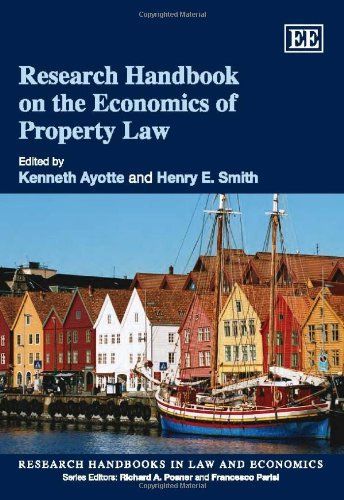
Research Handbook on the Economics of Property Law
Leading scholars in the field of law and economics contribute their original theoretical and empirical research to this major Handbook. Each chapter analyzes the basic architecture and important features of the institutions of property law from an economic point of view, while also providing an introduction to the issues and literature. Property rights and property systems vary along a large number of dimensions, and economics has proven very conducive to analyzing these patterns and even the nature of property itself. The contributions found here lend fresh perspectives to the current body of literature, examining topics including: initial acquisition; the commons, anticommons, and semicommons; intellectual property; public rights; abandonment and destruction; standardization of property; property and firms; marital property; bankruptcy as property; titling systems; land surveying; covenants; nuisance; the political economy of property; and takings. The contributors employ a variety of methods and perspectives, demonstrating the fruitfulness of economic modeling, empirical methods, and institutional analysis for the study of both new and familiar problems in property. Legal scholars, economists, and other social scientists interested in property will find this Handbook an often-referenced addition to their libraries.